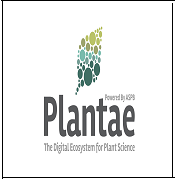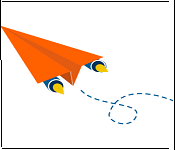
Plant Genomics 2022

Theme: Surpassing the Vision in Plant Genomic Sciences
Due to amid travel restrictions in Japan, this year we are making the 6th World Plant Genomics and Plant Science Congress online which will be scheduled for April 29-30, 2022, in Osaka, Japan time zone(GMT+9) which includes prompt keynote presentations, Oral talks, EPoster presentations and Virtual Exhibitions. The theme of the conference is, “Surpassing the Vision in Plant Genomic Sciences”. Plant Genomics 2022 is the premier online event that brings together a unique and international mix of experts, researchers and decision-makers both from academia and industry across the globe to exchange their knowledge, expertise and research innovations to build a world-class plant genomics conference. Plant Genomics Event encourages focusing mainly on aspects such as breeding, molecular marker development, plant physiology, disease resistance, genome integrity, biotechnology applications and CRISPR-Cas9 system as well understanding tools to overcome barriers and enable successful data analysis and management. Presentations concentrate not only particular to plant genome science but also crop and forestry research ranging from wheat, barley, maize and rice to potato, tomato, Arabidopsis, biofuels and various fruits.
Meetings International has taken an initiative to felicitate attendees with awards to recognise, celebrate and encourage achievement in its various conferences and events. We salute and acknowledge attainment within an industry that is continuously evolving and re-drawing the boundaries of best practice. These awards represent the pinnacle of professional achievement for event professionals. To win an award you will have been endorsed by our illustrious panel of the foremost industry professionals which is a sure-fire signifier of your formidable credentials.

Outstanding Speaker in Plant Genomics 2022: This award recognises academic and business speakers for their excellent presentation skills and for the significant contribution in plant genomics and plant life sciences that they make to their professions, their teams and their patients through their practice, leadership or research endeavour. Recipient of this award will be chosen by the session chair and co-chair. The awardees will be felicitated after the completion of oral session. Our Plant Genomics Conferences encourage researchers from across the globe to take part as a speaker at these prestigious events.

Best KeyNote Speaker in Plant Genomics 2022: This award recognises the notable presentations given during the course of the plant genomics conference. It also recognizes the enthusiasm and determination of the speaker to improve the experience of all who they come into contact with. The award will be given based on the impact of presentation on the attendees of the event. We will also be taking into account the references taken from the citations of the keynote speaker. This awardees will be felicitated by one of the members of the organizing panel present during the conference.

Best Organising Committee Member in Plant Genomics 2022: This award seeks to recognise the continuous support provided by the Organising Committee Member of the conference. Recipient of this award will be selected by the operating committee of the plant genomics 2021. The award will be given based on the support and cooperation provided by a member of the organizing panel from the beginning to the successful completion of the conference.

Outstanding Masters/Ph.D./Postdoc Thesis work presentation in Plant Genomics 2022: This award seeks to recognise the young brains of the current era. Recipient of this award will be selected by the judge of the Young Researchers Forum. This award will be given based on the presentation skills, impact of research and its applications for the plant genomics field. Participants pursuing Masters, PhD or Post-Doctoral studies are eligible for this award. The awardees will be felicitated after the completion of all the oral presentations delivered under the Young Researchers Forum category.

Best Poster Award in Plant Genomics 2022: This award recognises the best poster presentation given during the course of an event. Recipient of this award will be selected by the judge of the poster session. An award winning poster will be evaluated on presentation content and clarity, innovativeness of approach, communication criteria and scientific aspects. It will also be based on layout, plant genome science research insights, and analysis and results description. The awardees will be felicitated after the completion of poster session.
The honours are given for our Plant Genomics conferences to perceive the wide scope of obligations and commitment of plant genomics and plant science experts who advance the quickest improvements and inventive practices in the field of plant genome editing and plant science research. Plant Genomics Events make an immense commitment to surpass the research practices and introduce new insights of plant life sciences to the globe.
Criteria:
- All presented abstracts will automatically be considered for the Award.
- All the awards will be selected by the judges of the award category.
- The winners will be formally announced during the closing ceremony.
- The winners of the Poster Award will receive an award certificate.
- The awards will be assessed as far as plan and format, intelligence, argumentation and approach, familiarity with past work, engaging quality, message and primary concerns, parity of content visuals, and by and large impression.
Guidelines:
- All submissions must be in English.
- The topic must fit into scientific sessions of the conference.
- Each individual participant is allowed to submit maximum 2 papers.
- Abstract must be submitted online as per the given abstract template.
- Abstracts must be written in Times New Roman and font size will be 12.
- Abstract must contain title, name, affiliation, country, speaker’s biography, recent photograph, image and reference.
- Each poster should be approximately 1x1 M long. The title, contents, and the author’s information should be clearly visible from a distance of 1-2 feet.
Session 01: Plant Genome Science
Plant Genomics is the field of plant science focused on understanding the sequence, structure and regulation of the genome. With the advent of low cost high-throughput sequencing, investigations of the genome have become much more sophisticated in recent years. It is now possible to compare multiple genomes within a species (pan-genomes) as well as across species (comparative genomics). One of the major challenges facing the field today is developing tools to mine these massive datasets and to visualize the results of comparative studies. As additional data channels become available (e.g. methylation profiles, RNAseq datasets, chromatin maps), new computational tools will also be needed to integrate multiple omics datasets.
Keywords: Plant Genomics Congress | Plant Science Congress | Plant Genomics Meetings | Plant Science Meetings | Plant Genomics Workshops | Plant Genomics Events | Plant Genomics & Plant Science Conferences | Plant Genomics Conferences
Session 02: Agribusiness
Agricultural Science is a broad multidisciplinary field of biology that encompasses the parts of exact, natural, economic and social sciences that are used in the practice and understanding of agriculture. Plant Genomics 2022 encourages to showcase your research and development on: production techniques (e.g., irrigation management, recommended nitrogen inputs), Improving agricultural productivity in terms of quantity and quality (e.g., selection of drought-resistant crops and animals, development of new pesticides, yield-sensing technologies, simulation models of crop growth, in-vitro cell culture techniques), Minimizing the effects of pests (weeds, insects, pathogens, nematodes) on crop or animal production systems.
Keywords: Agribusiness Congress | Plant Science Congress | Plant Genomics Meetings | Plant Science Meetings | Plant Genomics Workshops | Plant Genomics Events | Plant Genomics & Plant Science Conferences | Plant Genomics Conferences
Session 03: Molecular Plant Breeding
The recent integration of advances in biotechnology, genomic research, and molecular marker applications with conventional plant breeding practices has created the foundation for molecular plant breeding, an interdisciplinary science that is revolutionizing 21st century crop improvement. Though the methods of molecular plant breeding continue to evolve and are a topic of intense interest among plant breeders and crop scientists. Plant Genomics Conference is providing the global platform to unleash your innovations in molecular plant breeding and collaborate with research and industrial developments.
Keywords: Molecular Plant Breeding Congress | Plant Science Congress | Plant Genomics Meetings | Plant Science Meetings | Plant Genomics Workshops | Plant Genomics Events | Plant Genomics & Plant Science Conferences | Plant Genomics Conferences
Session 04: CRISPR-Cas9 system in plants
Developed in 2012 by scientists from the University of California, Berkeley, CRISPR-Cas9 has received a lot of attention in recent years due to its range of applications, including biological research, breeding and development of agricultural crops and animals, and human health applications.
CRISPR-Cas9 allows researchers to perform the following:
Gene Knock-Out
DNA-Free Gene Editing
Gene Insertions or “Knock-ins”
Transient Gene Silencing
Keywords: CRISPR Congress | Plant Science Congress | Plant Genomics Meetings | Plant Science Meetings | Plant Genomics Workshops | Plant Genomics Events | Plant Genomics & Plant Science Conferences | Plant Genomics Conferences
Session 05: Plant Genome Integrity
A comprehensive overview of the current progress on the study of the genotoxic stress response in plants at the cellular and molecular level will be provided. This will hopefully bring together valuable information for both plant biotechnologists and breeders and will help advance the translation of knowledge about the DDR in plants that could be applied to human diseases. Thus, this Research Topic aims to address, but is not limited to, the following sub-topics:
DNA damage sensing and repair in plants: established and emerging players.
DDR pathways and cell cycle regulation in plants.
DNA repair and seed germination - how quiescent cells cope with DNA damage.
The balance between DNA repair pathways in the context of genome editing in plants.
High-throughput techniques, bioinformatic tools and genotoxicity assays to provide new insights into DDR and plant epigenome and epitranscriptome.
Keywords: Genome Integrity Congress | Plant Science Congress | Plant Genomics Meetings | Plant Science Meetings | Plant Genomics Workshops | Plant Genomics Events | Plant Genomics & Plant Science Conferences | Plant Genomics Conferences
Session 06: Plant Biotechnology
Plant biotechnology uses the genetic engineering of agricultural crops as a means of producing foods rich in antioxidant nutrients, whilst plant cells and tissue culture techniques are used for the in vitro increment of antioxidant compounds in plant cells. Plant Genomics Congress encouraging the plant biotechnologists to enclose and surpass the new insights for crop improvement and food quality.
Keywords: Plant Biotechnology Congress | Plant Science Congress | Plant Genomics Meetings | Plant Science Meetings | Plant Genomics Workshops | Plant Genomics Events | Plant Genomics & Plant Science Conferences | Plant Genomics Conferences
Session 7: Plant Virology
Plant viruses consist of a nucleoprotein in that multiplies only in the living cells of a host .The presence of viruses in host cells often results in disease,400 or more viruses are known to attack plants.
Keywords: Plant Virology Congress | Plant Science Congress | Plant Genomics Meetings | Plant Science Meetings | Plant Genomics Workshops | Plant Genomics Events | Plant Genomics & Plant Science Conferences | Plant Genomics Conferences
Session 08: Medicinal Plants
Medicinal Plants have been used for thousands of years to flavour and conserve food, to treat health disorders and to prevent diseases including epidemics. The knowledge of their healing properties has been transmitted over the centuries within and among human communities. Products derived from plants may potentially control microbial growth in diverse situations and in the specific case of disease treatment, numerous studies have aimed to describe the chemical composition of these plant antimicrobials and the mechanisms involved in microbial growth inhibition, either separately or associated with conventional antimicrobials.
Keywords: Medicinal Plant Congress | Plant Science Congress | Plant Genomics Meetings | Plant Science Meetings | Plant Genomics Workshops | Plant Genomics Events | Plant Genomics & Plant Science Conferences | Herbal Plant Science Conferences
Session 09: Plant Physiology
Plant Physiology session focuses on the study of the internal activities of plants, including research into the molecular interactions of photosynthesis and the internal diffusion of water, minerals, and nutrients. Also included are investigations into the processes of plant development, seasonality, dormancy, and reproductive control.
Keywords: Plant Physiology Congress | Plant Science Congress | Plant Genomics Meetings | Plant Science Meetings | Plant Genomics Workshops | Plant Genomics Events | Plant Genomics & Plant Science Conferences | Plant Science Conferences
Session 10: Plant Genetics Market
The global genomics market is projected to reach USD 54.4 billion by 2025 from USD 22.7 billion in 2020, at a CAGR of 19.0% during the forecast period. The major factors driving the growth of this market include the increasing government funding to support genomics projects, the growing incidence of cancer and increasing applications of NGS in cancer research, the entry of new players and start-ups in the genomics market, and the growing application areas of genomics.
Keywords: Plant Genetics Congress | Plant Science Congress | Plant Genomics Meetings | Plant Science Meetings | Plant Genomics Workshops | Plant Genomics Events | Plant Genomics & Plant Science Conferences | Plant Science Conferences
The global genomics market is projected to reach USD 54.4 billion by 2025 from USD 22.7 billion in 2020, at a CAGR of 19.0% during the forecast period. The major factors driving the growth of this market include the increasing government funding to support genomics projects, the growing incidence of cancer and increasing applications of NGS in cancer research, the entry of new players and start-ups in the genomics market, and the growing application areas of genomics.

The increasing demand for improved varieties in plants in the Asia Pacific region is driving the growth of the plant genomics market.
The key players in various countries of the Asia Pacific region are focusing on directing their investments toward biotechnology research on food crops and crops of high commercial value to cater to the increasing food requirements and to reduce poverty, particularly among resource-poor farming households. With the adoption of modern plant breeding techniques, new crop cultivars can be developed to ensure high crop productivity. Also, key strategies such as the adoption of advanced plant technology by the leading players in the Asia Pacific region ensure food security globally among the end-users. Also, the government in various countries of the region are encouraging companies to adopt these methods by investing in R&D of agricultural biotechnology.
Asia-Pacific CRISPR market
The Asia-Pacific CRISPR market is anticipated to record a CAGR of 21.18% over the estimated years of 2021 to 2028. The regional market’s growth is credited to key factors such as the rising dependency of consumers on non-vegetarian foods such as poultry meat, red meat, and seafood, the presence of well-recognized agriculture research facilities for developing productive and effective crops, and increased research and development (R&D) activities implemented in emerging economies.

Scope of CRISPR in Japan
In Japan, the innovation in CRISPR technology is primarily driving the growth of the market. For instance, in March 2021, the first genome-edited tomato was launched by Sanatech Seed. As a result, the authorities have announced that the genome-edited tomato will not be regulated as a genetically modified product. Moreover, the tomato contains high levels of gamma-aminobutyric acid that aid in relaxation, lowering blood pressure. Furthermore, a new tool was identified at Tokushima University, known as type I-D (TiD), a lesser-known CRISPR system. However, its broader applications are being developed. Hence, the rising developments in CRISPR technology are likely to fuel the Japanese CRISPR market’s growth.
Significant Plant Science Associations around the world
American Society of Plant Biologists (ASPB)
Australian Society of Plant Scientists (ASPS)
American Society of Agronomy (ASA)
African Crop Science Society (ACSS)
Brazilian Society of Plant Physiology (SBFV)
Plant Society of China (BSC)
Canadian Society of Plant Biologists (CSPB)
Chile's National Network of Plant Biologists (CNNPB)
Chinese Society of Plant Biology (CSPB)
Harvest Science Society of China (CSSC)
European Association for Research on Plant Breeding (EUCARPIA)
European Plant Science Organization (EPSO)
Alliance of European Societies of Plant Biology (FESPB)
Hereditary qualities Society of China (GSC)
Worldwide Society of Plant Pathology (ISPP)
Indian Society of Plant Physiology (ISPP)
Worldwide Crop Science Society (ICSS)
Worldwide Society for Horticultural Science (ISHS)
Irish Plant Scientists' Association (IPSA)
Worldwide Society for Plant Molecular Biology (ISPMB)
Japanese Society for Plant Cell and Molecular Biology (JSPCMB)
Japanese Society of Plant Physiologists (JSPP)
Korean Society of Plant Biologists (KSPB)
New Zealand Society of Plant Biologists (NZSPB)
Universities and Research institutes in Asia:
- University of Tokyo, Japan
- National University of Singapore, Singapore
- Peking University, China
- Tsinghua University, China
- Seoul National University, South Korea
- University of Hong Kong, Taiwan
- National Taiwan University, Taiwan
- Tokyo Institute of Technology, Japan
- KAIST - Korea Advanced Institute of Science and Technology, Korea
- Osaka University, Japan
- Fudan University, China
- Tohoku University, Japan
- University of Science and Technology of China, China
- Nanjing University, China
- Nagoya University, Japan
- The Chinese University of Hong Kong (CUHK), China
- Shanghai Jiao Tong University, China
- Hokkaido University, Japan
- Pohang University of Science and Technology, South Korea
- Zhejiang University, China
- Indian Institute of Science, India
- Kyushu University, Japan
- Indian Institute of Technology Bombay, India
- Sungkyunkwan University, South Korea
- National Tsing Hua University, Taiwan
- Yonsei University, South Korea
- University Putra Malaysia, Malaysia
- Bandung Institute of Technology, Indonesia
Top Universities in Middle East:
- Middle East Technical University, Turkey
- King Abdullah University of Science and Technology, Saudi Arabia
- Al Ain University of Science and Technology, United Arab Emirates
- Middle East Molecular Biology Sources – MEMBS, United Arab Emirates
- Ras al-Khaimah Medical and Health Sciences University, United Arab Emirates
- American University of the Middle East, Kuwait
- Khalifa University, United Arab Emirates
- King Saud bin Abdulaziz University for Health Sciences, Saudi Arabia
- Tel Aviv University, Israel
- Bar-Ilan University, Israel
- Kuwait University, Kuwait
Top Universities in Europe:
- University of Cambridge, England
- University of Oxford, England
- The University of Sheffield, England
- University in Uppsala, Sweden
- University in Bern, Switzerland
- University in Uppsala, Sweden
- University in Kortrijk, Belgium
- Public university in London, England
- The Norwegian University of Life Sciences, Norway
- University in Fribourg, Switzerland
- Leiden University, Netherlands
- University of Bonn, Germany
Top Plant Science and Plant Genomics Universities in USA:
- University of Arizona the School of Plant Sciences, Arizona
- Penn State University, Pennsylvania
International Research Centres for Plant Sciences and Plant Genomics:
- Center for Green Roof Research, North America
- Center for Sports Surface Research, USA
- Center for Turf grass Science, USA
- National Institute of Genetics, Japan
- National Institute for Basic Biology, Japan
- Riken Centre for Developmental Biology, Japan
- National Institute of Plant Genome research, India
- Zurich-Basel Plant Science Center, Switzerland
- Dahlem Centre of Plant Sciences, Germany
- Institute for Bio- and Geosciences Plant Sciences, Germany
- GMI - Gregor Mendel Institute of Molecular Plant Biology, Austria
- European Plant Science Organisation, Belgium
- L'institut Des Sciences Des Plantes - Paris-Saclay, France
- European Bioenergy Research Institute, England
A Unique Opportunity for Plant Scientists at this International event:
The Plant Genomics 2022 congress has been designed to create a collaborative environment in which you can engage with the speakers, sponsors and other delegations in attendance.
- Learn the applications of genome integrity in plant science
- Apply successful bioinformatic strategies to help overcome your plant phenotyping challenges
- Discover advances in the application of CRISPR – Cas 9 in plant research
- Explore the latest genomic research on key crops in Asia
- Keep up to date on regulations associated to gene editing
- Build on existing partnership and create new collaborations across industry & academia
- Give a poster presentation
- Access the Microbiome for Agriculture Congress Asia
Meetings International is announcing Young Scientist Awards through 6th World Plant Genomics and Plant Science Congress (Plant Genomics 2022) which is scheduled on April 29-30, 2022 in Osaka, Japan. This Plant Genomics Congress focuses on “Surpassing the Vision in Plant Genomic Sciences"
Plant Genomics 2022 and upcoming online conferences will recognize participants who have significantly added value to the scientific community of plant genome science and provide them outstanding Young Scientist Awards. The Young Scientist Award will provide a strong professional development opportunity for young researches by meeting experts to exchange and share their experiences at our international conferences.
Plant Genomics 2022 focuses mainly on breeding, molecular marker development, plant physiology, disease resistance, genome integrity, biotechnology applications and CRISPR-Cas9 system, Plant Genome Science, Arabidopsis, Tomato breeding, Plant Genetics and Genetics Market. Plant Genomics Congress is providing a platform for all the budding young researchers, young investigators, post-graduate/Master students, Ph.D. students, and trainees to showcase their research and innovation.
Eligibility:
Young Scientists, faculty members, post-doctoral fellows, PhD scholars and bright Final Year MSc and M.Phil. Candidates. Persons from Scientific Industry can also participate.
Benefits: The Young Scientist Feature is a platform to promote young researchers in their respective area by giving them a chance to present their achievements and future perspectives.
- Acknowledgement as YRF Awardee
- Promotion on the conference website, Young Researcher Awards and certificates
- Link on the conference website
- Recognition on Meetings Int. Award Page
- Chances to coordinate with partners around the world
- Research work can be published in the relevant journal without any publication fee
Criteria:
- All presented abstracts will automatically be considered for the Award.
- All the presentation will be evaluated in the conference venue
- All the awards will be selected by the judges of the award category
- The winners of the Young Scientist Award will receive an award certificate.
- The awards will be assessed as far as to plan and format, intelligence, argumentation and approach, familiarity with past work, engaging quality, message and primary concerns, parity of content visuals, and by and large impression.
Guidelines:
- All submissions must be in English.
- The topic must fit into scientific sessions of the conference
- Each individual participant is allowed to submit a maximum of 2 papers
- An abstract must be submitted online as per the given abstract template
- Abstracts must be written in Times New Roman and font size will be 12
- Abstract must contain title, name, affiliation, country, speakers biography, recent photograph, image and reference
Conditions of Acceptance:
To receive the award, the awardees must submit the presentation for which the award is given, for publication at the website, along with author permission. Failure to submit the PPT and permission within the designated timeframe will result in the forfeiture of the award.
Award Announcements:
The official announcement of the recipients will occur after the completion of Plant Genomics Conference.
- Plant Genome Science
- Agribusiness
- Molecular Plant Breeding
- CRISPR-Cas9 system in plants
- Plant Genome Integrity
- Plant Biotechnology
- Plant Virology
- Medicinal Plants
- Plant Physiology
- Plant Genetics Market
- Journal of Plant Physiology & Pathology
- Journal of Soil Science & Plant Health
- VEGETOS: An International Journal of Plant Research
10 Organizing Committee Members
8 Renowned Speakers
Vasileios Fotopoulos
Cyprus University of Technology
Cyprus
Ruby Bhullar Garcha
James Lind Institute
India
Doron Shkolnik
Hebrew University of Jerusalem, Israel
Slovakia
Miroslav Klobucnik
Slovak Academy of Sciences, Slovakia
Slovakia
Miguel Nemesio-Gorriz
Teagasc
Ireland
Ruchika
Japan Advanced Institute Of Science And Technology
Japan
Karen Swanepoel
Southern African Essential Oil Producers Association
South Africa
Divyashree Nageswaran
Tango Group International Ltd
United Kingdom

























